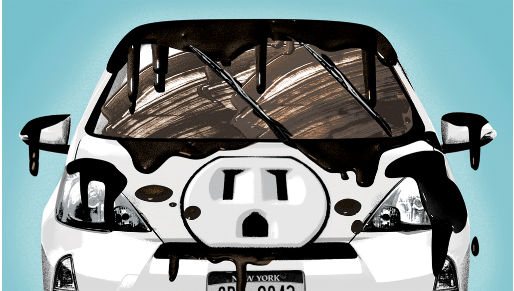Last week was the auto industry’s turn. In a speech in Ypsilanti, Mich., Mr. Trump said he would alter rules imposed by the Obama administration to raise vehicles’ fuel standards, which are aimed at curbing greenhouse gases. The rules, Mr. Trump said, are killing jobs. Getting rid of them would prompt a resurgence in the auto industry that would make America “the car capital of the world again,” he said.
That’s one possibility. We also have to consider another scenario: Loosening the fuel-economy rules could remove a primary incentive for big carmakers to catch up with innovative upstarts like Tesla and leave the American car industry out of step with a future ruled by electric motors rather than the internal combustion engine.
The resulting system has been a boon to upstarts like Tesla, which has sold hundreds of millions of dollars in credits. The rules have also given bigger companies an incentive to pursue electric vehicles. For instance, Chevrolet beat Tesla to market last year with a long-range electric car that sells for under $40,000, the Chevy Bolt. It did so partly to satisfy California’s rules; even if it does not make much money on each Bolt, selling the electric car will allow it to keep selling more profitable gas-powered cars.
“What we’re seeing is that the standard itself is creating an environment of competition, which is leading to rapid advances in electrification over the last seven years,” said Mr. Anair of the Union of Concerned Scientists.




